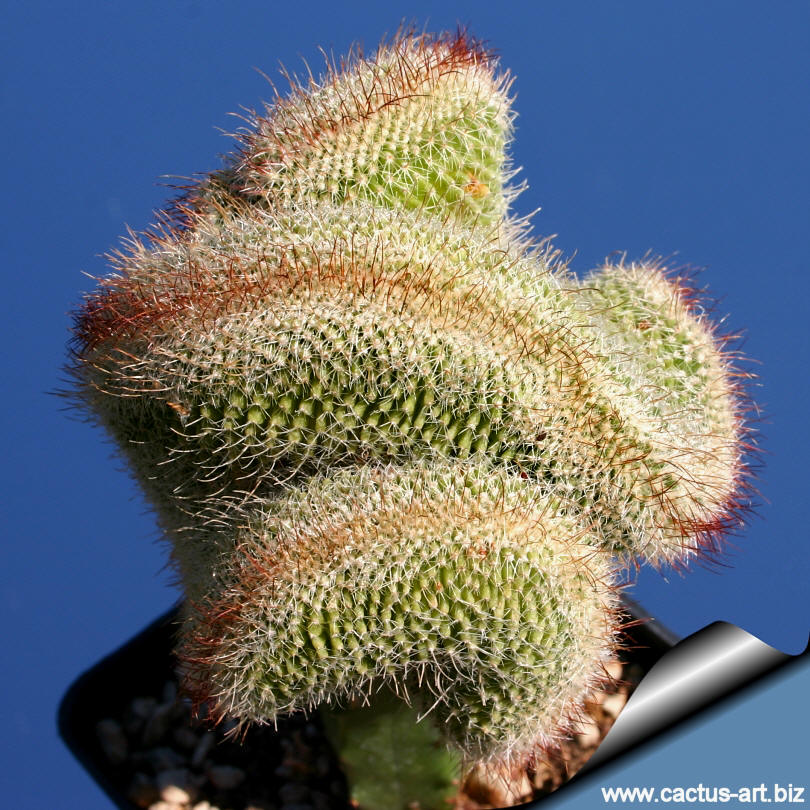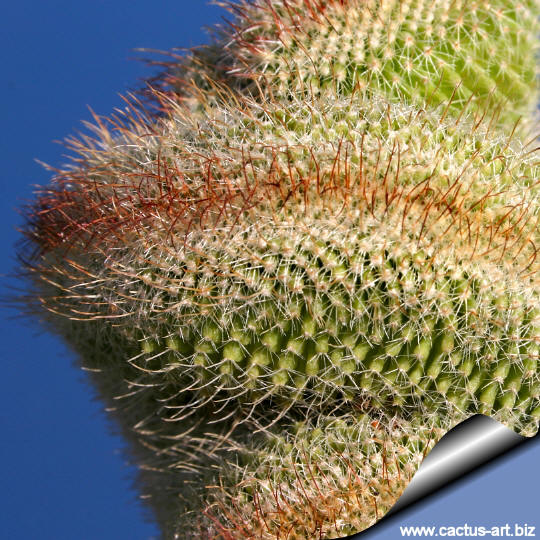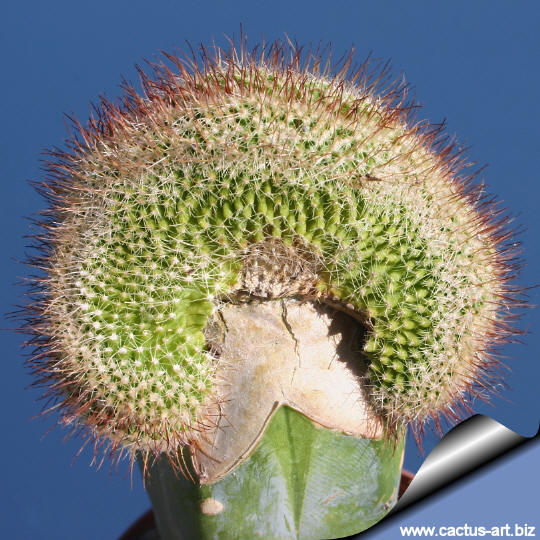|
|
|

This is one of the
species with the prettiest
spination.
|
Description:
The crested form of the E. guerraianus deviate
considerably from
the typical form for having thinner and densely packaged spines, however
the overall appearance depend on clones.
Stem: Fan shaped relatively thin (2-3 cm thick), to 20 (or more)
cm broad, bright-green with woolly apex.
Ribs: Tuberculate.
Areoles: To 4-8 mm apart;
Radial spines: Usually 8, white to yellowish, basally brown; up
to 1 cm long.
Central spine: 1, milky white to rusty-red approximately, 1-2 cm
long;
Flowers: Unknown.
|
|
Photo of
conspecific taxa, varieties, forms and cultivars of
plants belonging to the
echinofossulocactus crispatus
complex
(This
Taxon has lots of
synonyms (like most Echinofossulocactus) whit several controversial
varieties and subspecies):
|
|


Advertising
|
|
|
|
|
Family:
Cactaceae (Cactus
Family) Echinofossulocactus guerraianus Backeberg,
Published in: Das Cacteenlexikon, VEB Gustav Fischer
Verlag, Jena, p. 131 - 1970 forma criatata
Scientific name:
Stenocactus crispatus
(A. P. de Candolle) A. Berger ex A. W. Hill 1933,
(Mexico) forma criatata
Origin:
Garden origin (Nursery
produced cultivar)
Identifying the species of an Echinofossulocactus
is as difficult as identifying the genus is easy. For the most part,
they tend to look alike, and there are far more names than there are
species.
|

|
|
|
|
Cultivation: Easy to to care and
flower. It needs regular cacti soil with good drainage. Propagation:
Seeds (usually) Exposure: It likes strong sunshine
but is tolerant and do well with light shade during the hot Summer
months, allow to dry between watering. It should not
be watered at all in winter. Frost Tolerance:
does not tolerate intense or prolonged cold (hardy to -5°C if
kept dry)
 |
|